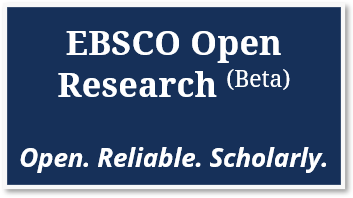AI-generated Content
The use of generative artificial intelligence (AI) or AI-assisted technologies in the writing process must be approached with caution. AI-generated content must undergo thorough review and careful editing to ensure accuracy, completeness, and objectivity. Any use of such technologies must be explicitly disclosed in the manuscript, and this disclosure will appear in the published version of the work. Full responsibility for the accuracy, integrity, and originality of the manuscript rests entirely with the author(s).








